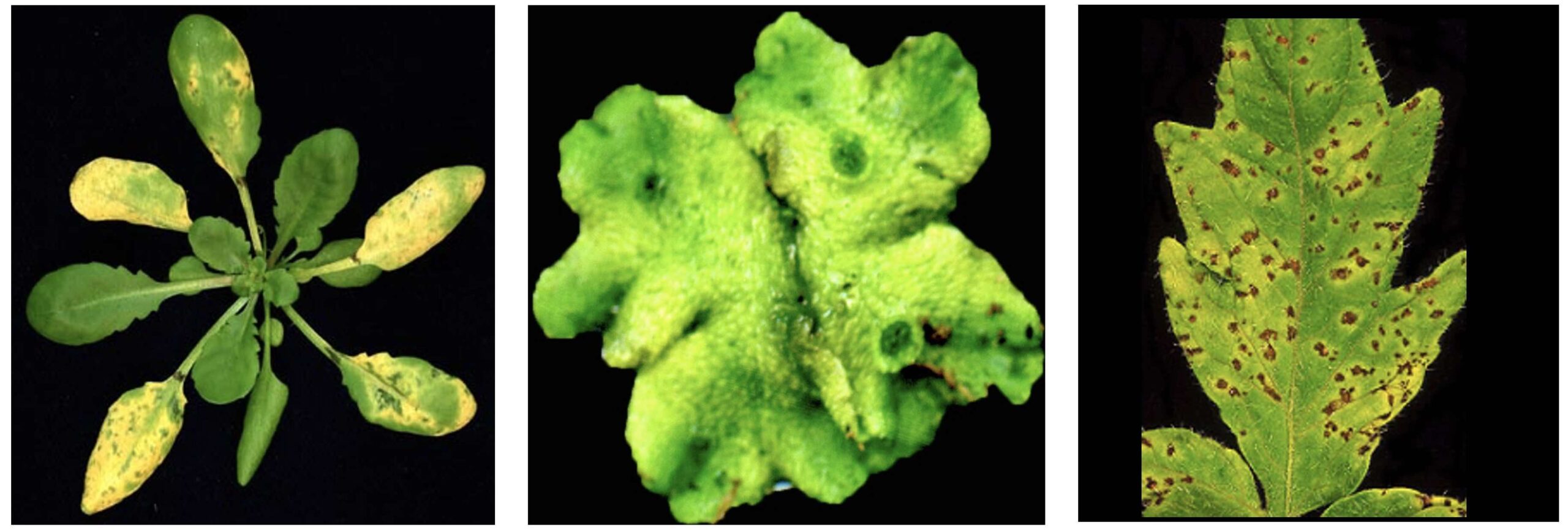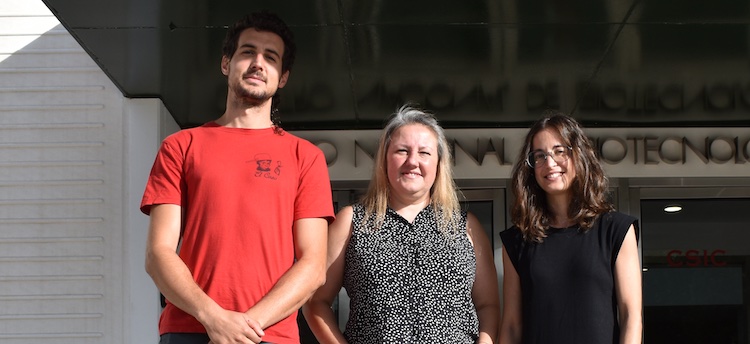Molecular Mechanisms Regulating Plant Resistance Against Phytopathogenic Bacteria
RESEARCH GROUP

Selena Giménez-Ibañez
Group Leader
Research Summary
Pathogen infections cause significant crop losses worldwide and major disturbances in natural ecosystems. The objective of our research is to gain knowledge into the molecular basis of hormonal plant immunity and infection strategies by phytopatogenic Pseudomonas syringae bacteria, towards the development of new solutions that could be applied into long-lasting strategies for crop protection against some of the most important diseases caused by this bacterium in crops.
Research Lines
Our research line falls into two areas of fundamental research, that are further combined with an additional directed applied line on important crops attacked by phytopathogenic Pseudomonas bacteria, such as tomato and kiwifruit. Our research uses on one side, model plants such as Arabidopsis and the liverwort Marchantia, to uncover the basic molecular mechanisms controlling hormonal plant immunity and how Pseudomonas bacteria infects hosts. On the other side, this generated basic knowledge is directed to study these processes on crops.
Specific Research Lines
- Evolution and Conservation of Immune Plant Hormone Signalling Systems.
The enormous gene redundancy in higher plants is slowing the rhythm of discovery of new plant regulators. In last few years, an incipient interdisciplinary field of evolutionary molecular plant-microbe interactions (evoMPMI) has emerged to bridge the gap between mechanistic molecular research and evolutionary studies. In this context, the liverwort Marchantia polymorpha is emerging as a model system for these type of studies because of its unprecedentedly low gene redundancy and available molecular biology techniques. A key discovery of our laboratory was that an ancient immune system governs plant-microbe interactions between M. polymorpha and Pseudomonas. We are currently studying the evolutionary conservation of the plant hormone signaling systems, focusing on the master immune hormone in angiosperms Salicylic Acid (SA), and leading the identification of novel regulators controlling plant immunity in this liverwort.
- Hijacking of Plant Defensive Processes by Bacterial Effectors and Phytotoxins.
A key virulence strategy of bacterial pathogens is the delivery of multiple pathogen effector proteins and phytotoxins into host cells during infection. Thus, elucidating effector action into plant cells is essential to understanding bacterial pathogenesis and how Pseudomonas bacteria imposes the disease state in its host plants. Here, we are studying how virulence effectors and the phytotoxin coronatine from Pseudomonas syringae manipulate host functions and immunity to promote disease. This objective takes advantage of our previous expertise in identifying the targets sabotaged by effectors molecules.
- Applied Crop Research: Inactivation of Bacterial Virulent Systems in Crops.
Pseudomonas syringae attacks though its repertoire of effectors and phytotoxins specific plant targets (commonly known as plant susceptibility genes), which designate these hubs as a major Achilles’ heel for the plant. Thus, a recent strategy for protecting crops against diseases is based on the removal or modification of such susceptibility genes to avoid their manipulation by pathogens. Here, we direct previously generated basic knowledge to study these processes on crops, and to deliver novel strategies for crop protection against two of the most important disease caused by Pseudomonas, the bacterial speck disease of tomato and the bacterial canker of kiwifruit, by using biotechnology, genome editing and potential novel anti-infective chemicals among others.

Disease effects of the bacterium Pseudomonas syringae in the model plants Arabidopsis (left) and Marchantia (middle), and a tomato (right).
Publications
Members
Group Leader
Selena Gimenez-Ibañez
Postdoctoral Researcher
Loreto Espinosa Cores
Phd Candidate
Santiago Michavila (co-directed with Prof. Roberto Solano)




